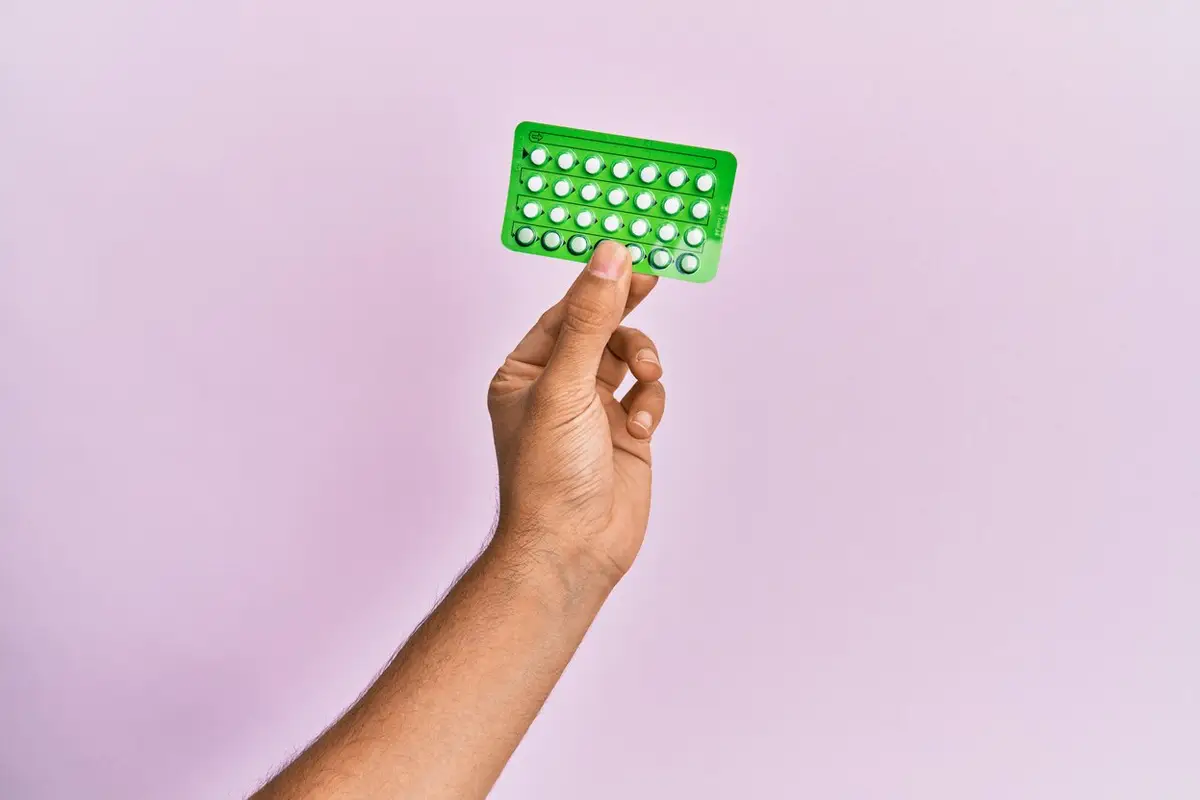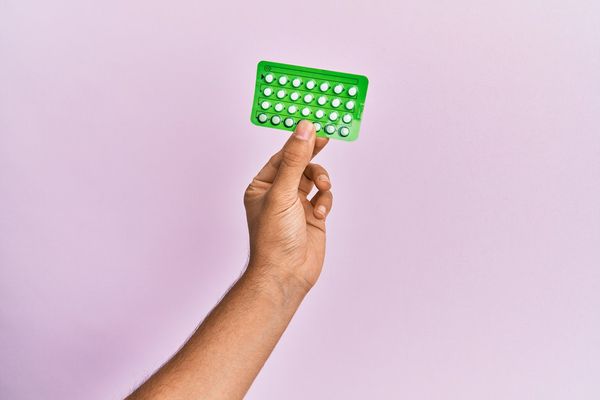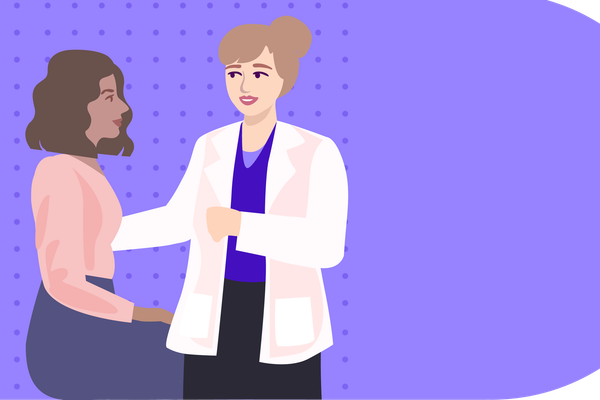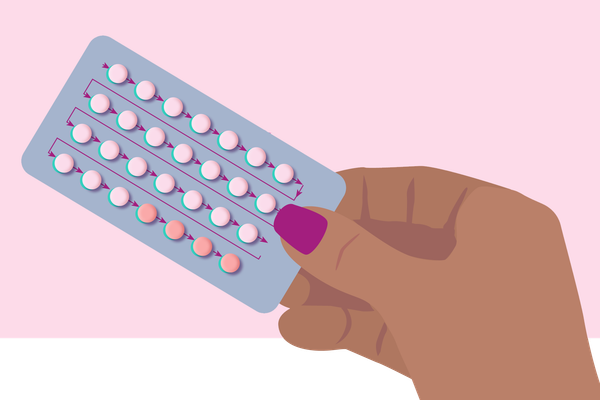People have more than 50 hormones circulating in their blood. These chemicals carry messages throughout the body to control metabolism (the process of changing food into energy), growth and development, sexual function, and many other things.
Estrogen and progesterone help women become and stay pregnant. Estrogen helps release eggs (ova) from the ovary. Progesterone prepares the uterine lining to support a pregnancy after an egg is fertilized by sperm.
How do hormones in birth control work?
Hormonal birth control using estrogen and progestin (a form of progesterone) stops the ovaries from releasing eggs and changes the uterine lining so it won’t support a fertilized egg. The hormones in birth control also prevent pregnancy by changing the quality of the mucus at the cervix, which blocks sperm from moving up into the uterus.
Are there estrogen-free contraceptive pills?
The most commonly used birth control pills are called combination pills, which contain both estrogen and progestin. But there are estrogen-free pills available for people who can’t — or prefer not to — take estrogen. Some reasons you may want to avoid estrogen include:
- Potential side effects
Some women have mild or no side effects to estrogen, but you may want to avoid estrogen if you experience:
- Breast tenderness
- Bloating
- Weight gain
- Breakthrough bleeding
- Age and Smoking Status
If you’re over 35 and smoke, birth control with estrogen should be avoided.
- Health issues
Women with certain diseases or conditions may not be able to take estrogen. These include:
- Heart disease or high blood pressure
- Migraine disease with aura
- Breast cancer
- Liver or gallbladder disease
- Blood clotting disorder
- Smoking
- High BMI coupled with blood clots and cardiovascular disease
- Breastfeeding
Women who are breastfeeding should avoid estrogen, because estrogen can lower the amount of breast milk you produce.
How well do estrogen-free birth control pills work?
Estrogen-free pills work really well. They have a slightly lower effectiveness rate than combination pills, but they are still very effective — up to 99% if taken “perfectly.” However, since people aren’t perfect, and it’s easy to forget or miss pills, this type of pill is about 91% effective in reality.
There is not a lot of information on the efficacy of birth control pills in women with overweight or obesity because women with higher BMIs were often not included in clinical trials. There is one estrogen-free pill (Slynd), however, that included women of higher BMIs in their clinical trials and found it to be effective in a wide range of body types.
How long does it take for birth control pills to protect against pregnancy?
Pregnancy protection starts right away if you take combination pills within five days of starting your period. For estrogen-free pills, pregnancy protection begins one to two days after you start taking them, depending on which pill you take and where you are in your cycle.
How do you take hormonal birth control pills?
It's important to take birth control pills every day. For the combination pill, you can take it any time of the day, as long as you take it every day. For the estrogen-free pill, you need to take it at the exact same time every day.
For most estrogen-free pills, there’s a three-hour window to take a missed pill. But there is one newer estrogen-free option that allows you a 24-hour window if you’ve missed a pill. Talk to your pharmacist about your drug’s timing and read the instructions with your prescription.
No matter which type of hormonal contraceptive you use, it’s important to use a backup method such as condoms until the pills are effective. Also note that hormonal contraceptives do not protect against sexually transmitted infections (STIs).
How does hormonal birth control affect your fertility?
Most women who stop taking hormone contraceptives can become pregnant shortly after they stop using them (pills or vaginal rings) or have them removed (implant). It can take a few weeks to a few months, because the estrogen in these contraceptives stops ovulation. On the other hand, estrogen-free pills only affect the uterine lining, so once you stop taking them, the lining returns to its usual state and can support a pregnancy. This can happen in a few days or a few weeks.
How does hormonal birth control affect your menstrual cycle?
With combination birth control pills, you usually get your period every month at the same time. The combination hormone pills come in a package with 28 pills, but only 21 have hormones. The others are placebos (so-called sugar pills) for you to take so you don’t get out of the habit of taking it or forget when you last took it. This is also when you would have your period.
Estrogen-free contraceptives don’t usually have placebos. But, there’s one estrogen-free brand that has 24 hormone tablets and four placebos. With all hormonal contraception, you may experience breakthrough bleeding, especially when you first start taking the pills.
Some women stop having periods while taking estrogen-free birth control pills, while others may have a period around the last week of the packet. Hormonal birth control pills can be helpful for women who have irregular or heavy monthly periods.
How do I switch birth control options safely?
If you’re using one form of contraception and want to switch to another, ask your healthcare provider about your options, and when the best time is to make the switch.
This resource was created with funding support from Exeltis, USA.
- Clinically Speaking: Questions and Answers About Choosing Hormonal Birth Control ›
- Fast Facts: What You Need to Know About Birth Control ›
- Clinically Speaking: Questions to Ask Your HCP About Birth Control Methods ›
- Hormonal Birth Control ›
- Hormonal vs. Non-Hormonal Contraception: What’s the Difference? ›
- Estrogen-Free Birth Control Pills - HealthyWomen ›





